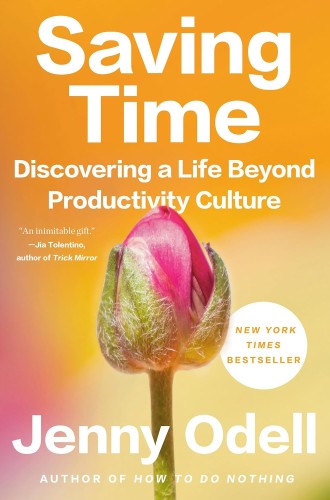De-commodifying time
Jenny Odell argues that we need to get back in touch with our preindustrial sense of time.
After the world changed in March 2020, many of us became acutely aware of the varied ways that we experience time. Extreme social distancing made time contract and expand at once, with hours crawling by while weeks flew—or perhaps the reverse. During that early phase of the COVID-19 pandemic, artist and writer Jenny Odell began to feel acutely what farmers throughout history have always known: not all minutes, hours, or days are equal in length. Though we follow a 24-hour clock, time as we experience it takes many forms.
Touching on topics as wide-ranging as the search for hope amid climate change, the experiences of people with disabilities trying to live by standardized schedules, the realities of people experiencing mass incarceration, and the perspectives of people whose sense of collective history has been forever altered by colonialism, Odell’s Saving Time argues that part of the answer to our biggest problems may entail getting back in touch with our preindustrial sense of time, seeing it less as commodity and more as the “stretchy quality of waiting and desire, the way the present may suddenly feel marbled with childhood memory, the slow but sure procession of a pregnancy, or the time it takes to heal from injuries, physical or emotional.”
What makes this book powerful is Odell’s refusal to succumb to determinism. Instead, she asserts that we can choose how we organize time. For her, a better system of time management would mean, “some kind of mutually beneficial agreement between you and me about when and how we want to do things.” She cites as an example a friend with whom she agrees never to apologize for delays in responding to emails, since both understand that they will respond when they can.





